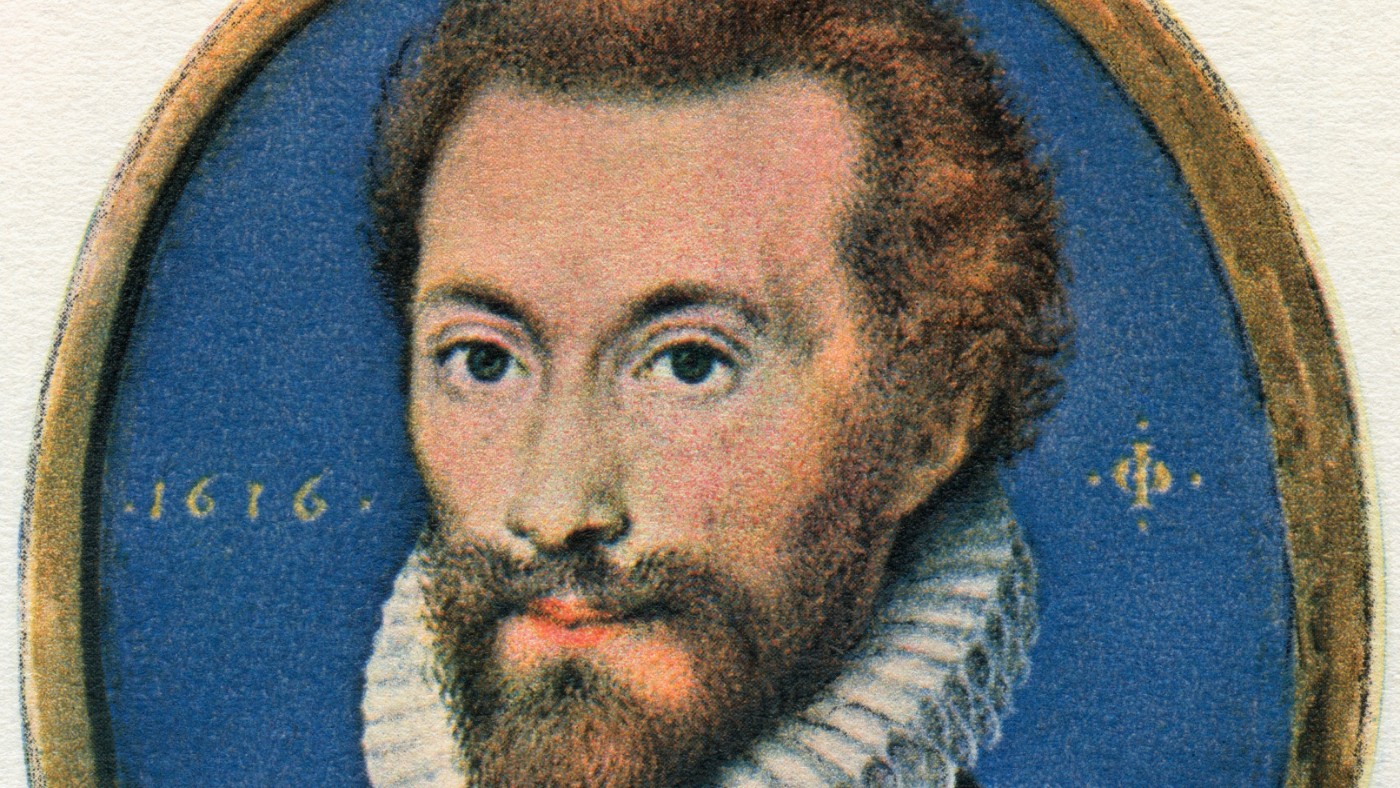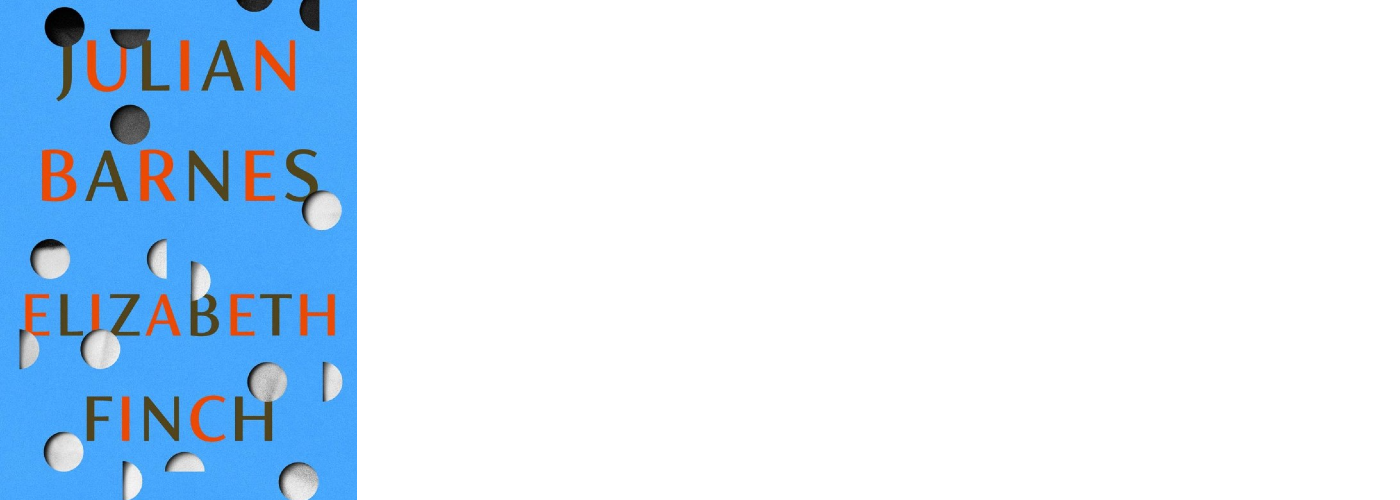Super-Infinite: the Transformations of John Donne by Katherine Rundell
This is a ‘thrilling reassessment of Donne’s oddly hinged career’

A free daily email with the biggest news stories of the day – and the best features from TheWeek.com
You are now subscribed
Your newsletter sign-up was successful
Julian Barnes’s latest is that “old-fashioned thing, a novel of ideas”, said John Self in The Times. It is narrated by Neil, a former actor, but is really all about Elizabeth Finch, the “lecturer on a course on culture and civilisation that Neil took decades earlier”.
Finch, who is “probably inspired” by Barnes’s friend, the late novelist Anita Brookner, is remembered as an inspirational teacher, someone “who obliged us – simply by example – to seek and find within ourselves a centre of seriousness”. Neil recalls their sort-of friendship – they occasionally met for lunch – and describes his quest, in the present day, to find out more about Finch in the wake of her death. Very much a “thinky” novel, Elizabeth Finch may be “rather less fun” than most of Barnes’s books, but it “offers plenty to chew on”.
“Part of the challenge of rendering a brilliantly inspirational teacher is making them sufficiently brilliant and inspirational,” said Sameer Rahim in The Daily Telegraph. Despite Neil’s insistence on Finch’s originality, “what she actually says tends to fall flat”. “She told me that love is all there is. It’s the only thing that matters,” a classmate of Neil recalls.
The Week
Escape your echo chamber. Get the facts behind the news, plus analysis from multiple perspectives.

Sign up for The Week's Free Newsletters
From our morning news briefing to a weekly Good News Newsletter, get the best of The Week delivered directly to your inbox.
From our morning news briefing to a weekly Good News Newsletter, get the best of The Week delivered directly to your inbox.
The novel is further let down by its baffling middle section, which consists of Neil’s “stolid student essay” on the fourth century Roman emperor Julian the Apostate, whom Finch regarded as a kindred spirit, said Sam Byers in The Guardian.
It all adds up to a “work stubbornly determined to deny us its pleasures”. I disagree, said Peter Kemp in The Sunday Times. As a teacher, Finch “blazes with vividness”, and Neil’s essay is a “bravura exercise in nimbly handled erudition”. Elizabeth Finch “celebrates the cast of mind” – subtle, sceptical and ironic – that “Barnes most prizes”.
Jonathan Cape 192pp £16.99; The Week bookshop £13.99

The Week Bookshop
A free daily email with the biggest news stories of the day – and the best features from TheWeek.com
To order this title or any other book in print, visit theweekbookshop.co.uk, or speak to a bookseller on 020-3176 3835. Opening times: Monday to Saturday 9am-5.30pm and Sunday 10am-4pm.
-
 Political cartoons for February 16
Political cartoons for February 16Cartoons Monday’s political cartoons include President's Day, a valentine from the Epstein files, and more
-
 Regent Hong Kong: a tranquil haven with a prime waterfront spot
Regent Hong Kong: a tranquil haven with a prime waterfront spotThe Week Recommends The trendy hotel recently underwent an extensive two-year revamp
-
 The problem with diagnosing profound autism
The problem with diagnosing profound autismThe Explainer Experts are reconsidering the idea of autism as a spectrum, which could impact diagnoses and policy making for the condition
-
 A thrilling foodie city in northern Japan
A thrilling foodie city in northern JapanThe Week Recommends The food scene here is ‘unspoilt’ and ‘fun’
-
 Tourangelle-style pork with prunes recipe
Tourangelle-style pork with prunes recipeThe Week Recommends This traditional, rustic dish is a French classic
-
 Samurai: a ‘blockbuster’ display of Japan’s legendary warriors
Samurai: a ‘blockbuster’ display of Japan’s legendary warriorsThe Week Recommends British Museum show offers a ‘scintillating journey’ through ‘a world of gore, power and artistic beauty’
-
 BMW iX3: a ‘revolution’ for the German car brand
BMW iX3: a ‘revolution’ for the German car brandThe Week Recommends The electric SUV promises a ‘great balance between ride comfort and driving fun’
-
 Arcadia: Tom Stoppard’s ‘masterpiece’ makes a ‘triumphant’ return
Arcadia: Tom Stoppard’s ‘masterpiece’ makes a ‘triumphant’ returnThe Week Recommends Carrie Cracknell’s revival at the Old Vic ‘grips like a thriller’
-
 My Father’s Shadow: a ‘magically nimble’ love letter to Lagos
My Father’s Shadow: a ‘magically nimble’ love letter to LagosThe Week Recommends Akinola Davies Jr’s touching and ‘tender’ tale of two brothers in 1990s Nigeria
-
 Send Help: Sam Raimi’s ‘compelling’ plane-crash survival thriller
Send Help: Sam Raimi’s ‘compelling’ plane-crash survival thrillerThe Week Recommends Rachel McAdams stars as an office worker who gets stranded on a desert island with her boss
-
 Book reviews: ‘Hated by All the Right People: Tucker Carlson and the Unraveling of the Conservative Mind’ and ‘Football’
Book reviews: ‘Hated by All the Right People: Tucker Carlson and the Unraveling of the Conservative Mind’ and ‘Football’Feature A right-wing pundit’s transformations and a closer look at one of America’s favorite sports